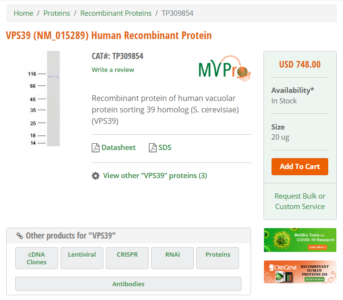Oils of doom, new painkiller plan, answers from the sewers, and more
27 Apr 2021
Posted by Andrew Kantor
Essentially dangerous?
Neurologists in India have found that essential oils — notably camphor and eucalyptus — may trigger epileptic seizures. For some people, it could trigger their first seizure, for others it can provoke a recurrence.
Analyzing 350 seizure cases that spanned a four-year period, the researchers determined that 15.7%, or the seizures of 55 patients, may have been induced by the inhalation, ingestion or topical use of essential oils.
And when patients kept away from the essential oils, their seizures stopped. This was just a small observational study, of course, but it certainly warrants investigation.
On the other hand…
Purdue researchers found that compounds in essential oils can make pyrethroid insecticides more effective. Rather than use more insecticides, their findings “show that essential oils can kill bed bugs, but the combination of essential oils and pyrethroid insecticides has a synergistic effect.”
The receiving end
Sometimes the body’s natural painkillers just aren’t enough, so we take drugs like opioids. They bind to the same pain receptors, but there are unwanted side effects, including addiction. (You might have heard about this.) They also tend to stay in the body a lonnnng time.
So what, figured University of Michigan pharmacologists, if we could enhance the body’s own painkillers? The twist: Not by getting the body to make more, but by making the body’s receptors more receptive.
That approach not only makes the body’s own painkillers more effective, it’s got some major benefits.
- It only works when the body is releasing painkillers — when there’s actual pain.
- It only affects the area that’s in pain.
- It only works for a limited time.
So the U of M folks developed a chemical (a “positive allosteric modulator”) that does just that. So far it works in mice, and it’s still preliminary. Still, tackling pain from a different angle seems like a smart idea.
Au bon pain
When it comes to pain, researchers at Syracuse University didn’t just test CBD. They tested CBD, the placebo effect, and the “expectancy effect” — the idea that telling someone their pain will be relieved can alleviate it.
So first they put people in pain. Then they gave them either CBD or a placebo. Then they told some they got CBD and some they got a placebo. (Follow that?)
Regardless, the result wasn’t as strong as common pain relievers:
“It’s not sunshine and rainbows pleasant, but something slightly less bothersome. We […] found that CBD and expectancies didn’t significantly reduce the volume of the pain, but they did make it less unpleasant—it didn’t bother them as much.”
Get out
By which we mean, “Take that European vacation.” You’ll be able to, if you’ve been vaccinated. The EU said it’s likely going to allow vaccinated U.S. tourists to do the tourist thing*, although individual countries might have individual restrictions.
* Talk loud, point a lot, smile and laugh, stand close, try to tip, be friendly to strangers … you know, just be American.
Type 2 weakness
People with type 2 diabetes often have muscle weakness, and now researchers in Denmark*, Germany, and Sweden have figured out why. It’s all about one gene: VPS39. It helps create new muscle cells, but “In people with type 2 diabetes, the VPS39 gene is significantly less active.”
When that VPS39 gene isn’t working properly, muscle stem cells can’t absorb the sugar they need to become mature muscle cells. “[T]he cells therefore remain immature or break down and die.”
So their next plan: See if they can regulate proteins to get those VPS39 genes working properly again and get those muscles to mature.
* The shifty ones
Author’s very surprised note: While researching this story I discovered GeneCards, the human gene database. Look up whatever gene you want (like VPS39) get tons of info, and even buy the proteins it encodes for. Welcome to the future.

Sound familiar?
The president downplayed the pandemic. Health officials were afraid to contradict him. People became convinced Covid just wasn’t a big deal in the country. Social distancing guidelines were ignored. Super-spreader events were held. Government data became suspect.
We’re talking about India, of course, which is now experiencing a massive Covid-19 surge. It’s too big to even get accurate figures, and the country is now asking the rest of the world for help. (Considering it’s a vaccine-production center, it’s probably a good idea to help out.)
Alzheimer’s cleaning crew
Yet Another Drug seems to have potential to treat Alzheimer’s. This one comes from the Albert Einstein College of Medicine, and it works by “reinvigorating” the cellular cleanup crew known as chaperone-mediated autophagy — CMA.
CMA activity declines with age, which is a big problem with Alzheimer’s. The new drug helps ramp up the CMA process, cleaning out the proteins that are the hallmark of the disease. Right now it’s only been tested in mice, but the researchers note that mice and humans share that same ‘weak CMA’ issue, so this could translate.
You know what’s next: “More research is needed.”
The Long Read: America’s missing poop detectives
From Smithsonian: “Sewage Has Stories to Tell. Why Won’t the U.S. Listen?” From tracking viruses and disease spread, to getting a picture of drug use and abuse, “Sewage epidemiology has been used in other countries for decades, but not here. Will Covid change that?”


